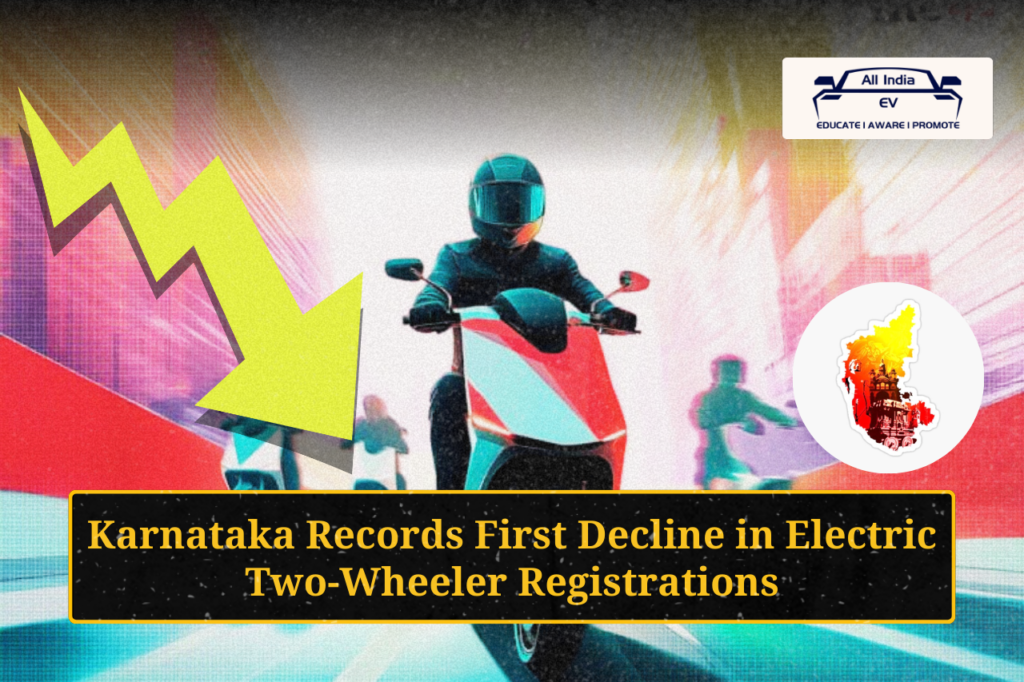
Limited Fast-Charging and Fewer Discounts Hit E-Two-Wheelers as E-Car and E-Auto Registrations Rise Across India
Karnataka has recorded its first-ever drop in electric two-wheeler registrations, marking a notable shift in the state’s EV growth story. In 2024-25, over 1.3 lakh e-scooters and bikes were registered — down from more than 1.4 lakh in 2023-24. The decline comes despite zero registration tax on e-two-wheelers and a growing number of models in the market.
In total, 12.9 lakh two-wheelers — both petrol and electric — were registered during the year. Petrol models dominated, with an average of 3,170 daily registrations, compared to just 370 for electric.
Transport department officials attribute the slowdown to limited fast-charging infrastructure. “Short-distance urban commuters prefer e-scooters, and we have seen consistent growth. But with slow home charging and few fast-charging options, interest seems to have dipped,” a senior official said.
EV owners echo these concerns. Shivasharan, an e-bike rider, said that while his vehicle offered decent range, slow charging speeds and a lack of charging stations remain a challenge. “I feel nervous using it in the rain or on bad roads,” he added.
Interestingly, other EV segments in Karnataka continued to grow. Electric car registrations rose from 10,299 in 2023-24 to 12,191 in 2024-25 — a steep climb from just 186 in 2019-20. However, the March 2024 introduction of a 10% lifetime road tax on e-cars priced above ₹25 lakh may impact future demand.
E-auto registrations surged, crossing 5,000 in 2024-25 from just 68 in 2019-20. The earlier permit exemption played a key role, but permits are now mandatory for all new and existing e-autos.
Public transport electrification also advanced, with e-bus registrations jumping from just 2 in 2020-21 to 731 in 2024-25, largely driven by state-run road transport corporations under the Electric Mobility Policy.
Industry experts point to scaled-back discounts as another reason for the slowdown. “A major manufacturer that once offered heavy incentives pulled back last year to focus on profitability,” said one analyst. Two other leading brands also reduced their discount-led approach, while reduced subsidies further hit sales.
Charging infrastructure gaps — including the lack of standardised connectors — continue to hinder adoption. While Bengaluru has fewer issues due to higher EV awareness, smaller cities still struggle.Despite the setback, officials are optimistic. “With an expanding fast-charging network and growing buyer confidence, the market is likely to bounce back,” a transport department official said. Experts also believe new model launches and the festive season could revive demand in the coming months.










